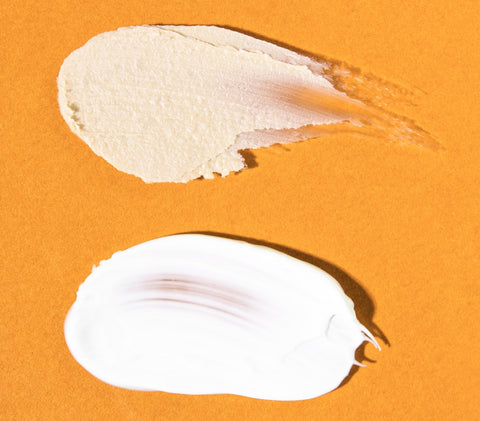Protecting your skin from the sun's harmful rays is essential for maintaining healthy skin. While traditional sunscreens often contain chemicals that can be harmful to both you and the environment, natural sunscreen offers a safer and more eco-friendly alternative. Here, we will explore the benefits of using natural sunscreen or sunscreen-lending ingredients (such as those within Heal Yes! mineral formulas) and discover how it can provide effective sun protection while keeping your skin and the planet healthy.
Key Takeaways
- Natural sunscreen offers a safer and more eco-friendly option for protecting your skin from the sun.
- Understanding what constitutes a natural SPF can help you make informed choices when selecting sunscreen.
- There are various natural ingredients with SPF properties that can shield your skin from harmful UV rays.
- Choosing the best organic sunscreen involves considering factors such as SPF level, ingredients, and certifications.
- If you prefer a hands-on approach, you can make your own natural sunscreen at home using simple and effective DIY recipes.
- The future of natural sunscreen looks promising, with advancements in formulation and sustainable packaging on the horizon.
What is a Natural SPF?
Understanding how natural SPF works is crucial when it comes to choosing the right sunscreen. Let's explore what constitutes a natural SPF and the key differences between natural and chemical sunscreens.
Natural SPF refers to the sun protection factor provided by ingredients derived from nature. These ingredients possess inherent properties that help shield the skin from harmful UV rays. Unlike chemical sunscreens, which typically contain synthetic compounds, natural sunscreens utilize plant-based extracts and minerals to provide protection.

Organic sunscreens have gained popularity in recent years, thanks to their natural and eco-friendly formulations. These products are free from harsh chemicals, such as oxybenzone and octinoxate, which have been found to harm coral reefs and marine life. By opting for an organic sunscreen, you not only protect your skin but also contribute to the preservation of our delicate ecosystems.
It's important to note that natural SPF levels can vary depending on the ingredients used in a sunscreen. Some natural oils, such as red raspberry seed oil, carrot seed oil, and coconut oil, have been found to offer natural SPF protection. However, it's essential to choose a sunscreen with a sufficient level of protection for your skin type and the intensity of sun exposure.
In the next section, we will explore natural ingredients with SPF properties and their sun-shielding benefits. Let's dive into the world of nature's own sunscreens.
Natural Ingredients with SPF Properties
Mother Nature offers an abundance of ingredients with natural SPF properties, providing effective protection against harmful UV rays. In this section, we will explore some of these incredible ingredients and their sun-shielding benefits, allowing you to make informed choices for your skincare routine.
The Power of Plant-Based Oils
Plant-based oils such as red raspberry seed oil, carrot seed oil, and coconut oil possess inherent SPF properties, making them excellent natural alternatives to chemical sunscreens. These oils work by creating a protective barrier on the skin's surface, reflecting and scattering UV rays. Red raspberry seed oil, for example, has been found to have an SPF value of up to 50, providing significant sun protection.
Nourishing Extracts with Sun-Shielding Benefits
Extracts derived from plants like green tea, aloe vera, and chamomile contain natural compounds that offer additional SPF protection. Green tea extract contains antioxidants and polyphenols that help neutralize free radicals caused by sun exposure, reducing the risk of skin damage. Similarly, aloe vera extract soothes and moisturizes the skin while providing a natural defense against UV rays. Chamomile extract, known for its calming properties, also offers a certain level of UV protection.
When these natural ingredients are combined, they form a powerful shield, protecting your skin from the harmful effects of the sun while nourishing and hydrating it.
It's important to note that while these natural ingredients provide some level of sun protection, they may not be as potent as conventional sunscreens. Therefore, it's crucial to consider the SPF level and reapply these natural sunscreens more frequently, especially when spending extended periods in the sun.
By incorporating natural ingredients with SPF properties, you can enjoy the benefits of sun protection while minimizing the use of synthetic chemicals on your skin. Embrace the power of nature and give your skin the care it deserves.
Choosing the Best Organic Sunscreen
When it comes to protecting your skin from the harmful effects of the sun, finding the best organic sunscreen is essential. With so many options available, selecting the right product can feel overwhelming. To help you make an informed decision, we have compiled some tips on how to choose the perfect organic sunscreen for your skin type and preferences.

Consider the SPF Level
One of the crucial factors to consider when selecting an organic sunscreen is the SPF level. SPF, which stands for Sun Protection Factor, indicates the level of protection the sunscreen offers against UVB rays. Look for an organic sunscreen with an SPF of at least 30, as this provides adequate protection for daily use. However, if you spend a lot of time in the sun or have fair or sensitive skin, consider opting for a higher SPF.
Check the Ingredients
When choosing an organic sunscreen, it's important to check the ingredients list. Look for sunscreen brands that use natural and organic ingredients, such as zinc oxide or titanium dioxide, which are effective at blocking both UVA and UVB rays. Avoid sunscreens that contain chemicals like oxybenzone, which can be harmful to your health and the environment. Opting for a mineral-based sunscreen is a safe and eco-friendly choice.
Look for Certifications
To ensure that you are purchasing a truly organic sunscreen, look for certifications such as USDA Organic or Ecocert. These certifications guarantee that the product meets strict standards for organic ingredients and sustainable production methods. Choosing a sunscreen with these certifications gives you peace of mind that you are using a product that is both safe for your skin and the environment.
Consider Your Skin Type and Preferences
Everyone's skin is different, so it's important to consider your skin type and personal preferences when selecting an organic sunscreen. If you have sensitive skin, look for sunscreens that are fragrance-free and designed for sensitive skin. If you prefer a lightweight formula, opt for a sunscreen with a lotion or gel consistency. Additionally, consider whether you want a water-resistant sunscreen if you will be engaging in water activities or sweating.
By taking these factors into account, you can find the best organic sunscreen for your specific needs. Remember to apply sunscreen generously and reapply regularly, especially after swimming or sweating, to ensure maximum protection. Enjoy the sun safely with a natural sunscreen that keeps both your skin and the environment in mind.

DIY Natural Sunscreen Recipes
For those who prefer a hands-on approach, making your own natural sunscreen at home is an option. With just a few simple ingredients, you can create effective sun protection using natural ingredients. Not only is it cost-effective, but you also have control over the ingredients used, ensuring a safer and more personalized product for your skin.
A Natural Alternative: Coconut Oil as SPF
One of the key ingredients in many DIY natural sunscreen recipes is coconut oil. This versatile oil not only provides sun protection but also offers moisturizing and nourishing benefits for the skin. Coconut oil has a natural SPF of about 4-6, providing a mild level of protection against harmful UV rays.
To create a basic coconut oil sunscreen, combine equal parts of coconut oil with zinc oxide, a mineral that acts as a physical sunscreen. Mix thoroughly and apply generously to exposed skin. Remember to reapply every two hours or more often if swimming or sweating.
Easy and Effective DIY Recipes
In addition to coconut oil, there are several other natural ingredients you can use to make your own sunscreen. Here are a few easy and effective DIY recipes:
1. Shea Butter Sunscreen
Ingredients: - 1/4 cup shea butter - 2 tablespoons coconut oil - 1 tablespoon zinc oxide - 1 teaspoon carrot seed oil (optional for added SPF) - 10 drops lavender essential oil (optional for fragrance)
Instructions: 1. In a double boiler, melt the shea butter and coconut oil together. 2. Remove from heat and stir in the zinc oxide, carrot seed oil, and lavender essential oil. 3. Pour the mixture into a container and allow it to cool and solidify before use.
2. Aloe Vera Gel Sunscreen
Ingredients: - 1/4 cup aloe vera gel - 2 tablespoons almond oil - 1 tablespoon zinc oxide - 10 drops chamomile essential oil (optional for soothing properties) - 10 drops peppermint essential oil (optional for a refreshing scent)
Instructions: 1. In a bowl, combine the aloe vera gel and almond oil. 2. Add the zinc oxide, chamomile essential oil, and peppermint essential oil, and mix well. 3. Transfer the mixture into a small container and store in a cool place.
3. Green Tea Sunscreen
Ingredients: - 1/2 cup brewed green tea, cooled - 1/4 cup olive oil - 2 tablespoons beeswax - 1 tablespoon zinc oxide - 10 drops eucalyptus essential oil (optional for added SPF and insect repellent properties)
Instructions: 1. In a double boiler, melt the beeswax and olive oil together. 2. Remove from heat and stir in the brewed green tea and zinc oxide. 3. Add the eucalyptus essential oil and mix well. 4. Pour the mixture into a container and allow it to cool and solidify.
Note: These DIY sunscreen recipes can provide a moderate level of sun protection, but it's important to understand that they may not have the same level of protection as commercially available sunscreens. It's always recommended to use additional sun protection measures such as seeking shade, wearing protective clothing, and avoiding peak sun hours.

The Future of Natural Sunscreen
As awareness of the harmful effects of chemical sunscreens grows, the demand for natural sunscreen continues to rise. People are becoming increasingly conscious of the impact of their skincare choices on both their health and the environment. In response, manufacturers are actively investing in the development of eco-friendly skin protectionsolutions that offer effective sun protection without compromising on sustainability.
The future of natural sunscreen lies in advancements in formulation, with researchers discovering innovative ways to harness the power of natural ingredients for sun protection. From plant-based extracts to mineral-based sunblocks, these formulations are designed to provide a more sustainable and healthier alternative to traditional sunscreens. Not only do they offer protection against harmful UV rays, but they also nourish and hydrate the skin, leaving it feeling refreshed and rejuvenated.
In addition to improved formulations, the packaging of natural sunscreens is also undergoing a revolution. Brands are opting for sustainable packaging materials, such as ocean-friendly bioplastics and recyclable materials, to reduce plastic waste and minimize their environmental footprint. By investing in eco-friendly packaging practices, these companies are setting the standard for the future of skincare, prioritizing both the health of their customers and the wellbeing of the planet.
As we move forward, it is essential to emphasize the importance of adopting eco-friendly skin protection practices. By choosing natural sunscreens, consumers can help protect their skin from the damaging effects of UV rays while minimizing their impact on the environment. From selecting reef-safe ingredients to supporting brands that prioritize sustainability, every choice we make can contribute to a healthier planet and healthier skin. Heal Yes! is an amazing brand to add to your routine because our mineral products utilize high-micron zinc oxide, a natural sun protection-imparting ingredient, as well as titanium dioxide in select formulas (though we eschew it in others because some of our sensitive-skinned supporters are sensitive to it!). Heal Yes! is truly the cleanest-of-clean makeup and skincare brands available!
































